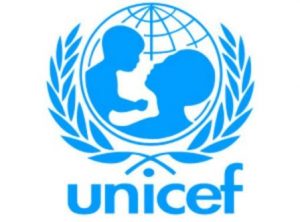-
Laments underfunding of WASH
ABUJA – As rains pound communities across Nigeria, 1.4 million displaced persons in the country’s northeast are at risk of cholera, the United Nations Children Fund, UNICEF, has warned.
Though residents of the region often see floods from rainfalls, majority of them do not have access to potable water.
In the northeast, an estimated 28 people have died from cholera, while 837 are suspected to have been infected with the disease, including at least 145 children under the age of five, UNICEF said in a statement made available to Nigeria Health Online at the weekend.
Absence of clean water and good sanitation could lead to cholera outbreak. These have been a challenge in a region that has been heavily terrorized by the Boko Haram group for years.
UNICEF said cholera outbreak was first identified in the Muna Garage camp for the displaced in Maiduguri, Borno state. The outbreak, it said, occurs as ongoing violence and military efforts against insurgents in the region have displaced more than 1.7 million people and left over 3.6 million without adequate access to basic water services.
According to the agency, the outbreak has spread to as many as six other locations in the state. UNICEF said it had joined partners to rapidly scale up response to the outbreak, adding that heavy rains multiply the risk of disease and malnutrition for conflict affected children.
Even in the face of a deadly cholera outbreak, water, sanitation and hygiene, WASH, sector remains critically underfunded, as UNICEF noted it had only received 49 percent of funding needed to provide two million people with access to clean water, one of the main interventions that can protect children from deadly waterborne diseases and offer some protection against the threat of malnutrition.
“Cholera is difficult for young children to withstand at any time, but becomes a crisis for survival when their resilience is already weakened by malnutrition, malaria and other waterborne diseases,” UNICEF Deputy Representative in Nigeria, Pernille Ironside was quoted as saying in the release.
She added that cholera is one more threat amongst many that children in the region currently battle with in order to survive.
“A cholera preparedness plan has been in place since before the rains began. Religious leaders, community heads and local volunteers have been mobilised to encourage good hygiene practices and help refer suspected cases to health facilities. Water is chlorinated at access points in the camps and across host communities in an effort to curb the spread of disease as the rainy season continues.
“Since the outbreak was confirmed there has been a closely coordinated water, sanitation and hygiene (WASH) and health rapid response, driven by the Borno State Government with support from WHO, UNICEF and international non-governmental organisations, including the setup of a cholera treatment centre at the Muna Garage Camp.
“As the impact of the rains is felt, UNICEF has also scaled up its nutrition and child health programmes across the three northeast Nigerian states most affected by conflict. So far this year, UNICEF has treated over 110,000 children suffering from severe acute malnutrition, distributed nearly 120,000 mosquito nets and provided emergency primary health care services to over three million people in these states. The response continues despite increased security concerns, reduced access because of floods and a heavily damaged health system,” the organization stressed.


